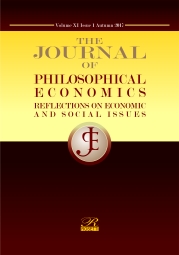Malthus’s idea of a moral and political science
Malthus’s idea of a moral and political science
Author(s): Sergio CremaschiSubject(s): Philosophy, Social Sciences, Economy, Special Branches of Philosophy, Sociology, Philosophy of Science, Social Theory, Socio-Economic Research
Published by: Editura Rosetti International
Keywords: moral science; political economy; methodology; doctrine of proportions;
Summary/Abstract: This paper discusses, first, the kind of Newtonian methodology Malthus had been exposed to at Cambridge; secondly, the views on algebra and the doctrine of proportions he inherited from MacLaurin and the contribution of his colleague Bewick Bewin in devising a special role for this doctrine in the moral sciences; thirdly, Malthus’s ideas on language and the reasons for rejection of an artificial language for political economy. Then it discusses his idea of political economy as a moral science and his claims to be Adam Smith’s true heir. The conclusion is that Hollander is right when he contends that Malthus’s and Ricardo’s methods, as contrasted with their methodologies, were just two opposite poles within one spectrum, but also that the Cantabrigian and Scottish tradition provided staple for a design of a moral and political science alternative to the Unitarian and the Benthamite programs.
Journal: Journal of Philosophical Economics
- Issue Year: III/2010
- Issue No: 2
- Page Range: 5-57
- Page Count: 53
- Language: English

